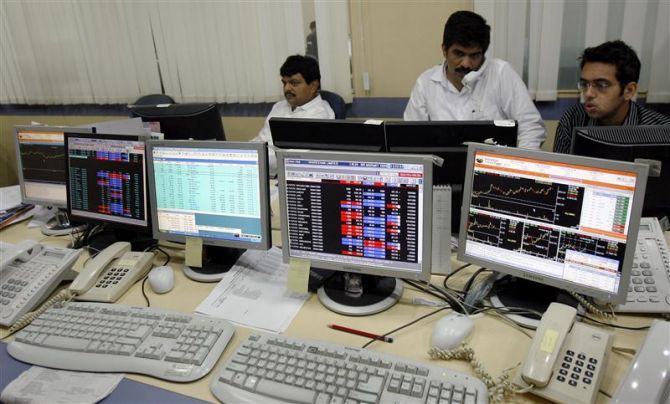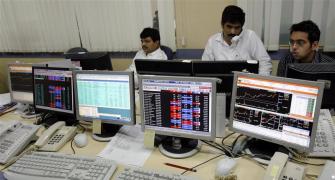The market is now trending at a large premium to fair value. There can be no further rate cut expectations for the next three months at least.
 The Reserve Bank of India (RBI) made it clear that the recent 50-basis point (bp) cut in the repurchase rate was the highest it dared to make.
The Reserve Bank of India (RBI) made it clear that the recent 50-basis point (bp) cut in the repurchase rate was the highest it dared to make.
The policy statement estimates consumer inflation will take an upwards trajectory in the current quarter (October-December).
The cut is based on that projection, and on what RBI thinks a healthy real interest rate structure should be.
Inflation was at 3.66 per cent in terms of the Consumer Price Index (CPI) of August 2015, compared to the CPI of August 2014.
The Wholesale Price Index (WPI) has been running negative year-on-year since December 2014.
A favourable base effect has been caused by energy prices, which started dropping in September last year.
In August 2014, crude oil (Brent) was trending at $91-95 per barrel.
It hit $79-80 in September 2014 and by December 2014, it was down to $52-55 per barrel.
Other energy fuels, such as coal and gas, dropped in tandem with crude.
The last four months of 2014 saw progressively lower energy prices.
The January-August 2015 period was compared to the same period of 2014, when crude oil prices were high.
But the September-December 2015 period will be compared to a period when energy prices dropped.
Hence, this will have an upwards impact on transport costs, fuel and lighting.
Food prices are also expected to move up due to the poor monsoons.
RBI expects the y-o-y CPI for December 2015 to be trending at about 5.8 per cent above the CPI of December 2014.
Since the CPI was at around 119.4 in December 2014, this implies an index level of 126.33 in December 2015 and that would be a minor advance on the August 2015 levels of 124.7.
The policy statement suggests RBI would like a 364-day treasury bill (T-bill) yield at about 1.5-2.0 per cent above the rate of retail inflation.
The T-bill yield dropped to 7.2 per cent after the repurchase rate cut.
The repurchase rate is set at 6.75 per cent and bank base rates are ranged at above nine per cent.
So, assuming an inflation projection of 5.8 per cent by December, and also assuming that yields won't change much in the next few months, the treasury yield is more or less where RBI wants it.
T-bill yields at longer timeframes could change, depending on FII perception of Indian debt.
Say there is a risk-free nominal return of between seven per cent and 7.5 per cent from T-bills.
A conservative investor would want a nominal earnings yield of that much or more from equity.
Since the earnings yield is the inverse of the PE ratio, the fair value for equity should be between PE 13.3-14, if T-bill yields are inside that 7-7.5 per cent band.
Most stocks are valued at well above that level. The major indices are trading at averaged PEs of 21-plus.
T-bill yields dropped 0.5 per cent in an immediate response to the rate cut.
That drop in yield has also already been reflected in rising stock indices since the RBI policy announcement.
The excess valuation should reflect expectations of strong earnings growth and those expectations may have been strengthened by the cut.
But whatever the justifications, the market is now trending at a large premium to fair value.
There can be no further rate cut expectations for the next three months at least.
Although the cut will take time to be transmitted commercially, the market may have discounted the impact except in very specific sectors where it might cause stimulus.










